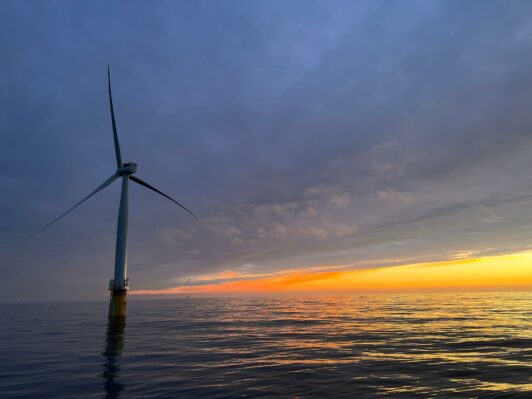The UK’s ability to develop its own critical minerals supply chains to safeguard the future of British industries risks being undermined by a lack of capacity in the electricity grid.
Ministers are being warned that grid constraints in minerals-rich areas like Cornwall will hold back the development of strategic national resources vital to a raft of British industries, from car making to defence.
Research shows that Cornwall alone could meet more than half the UK’s 2030 demand for lithium, which is an essential component of electric vehicle batteries and the transition to net zero.
The south west region is also rich in other critical minerals, including tin and tungsten, thanks to its rugged granite geology. And it is potentially earmarked for a multi-billion pound electric car battery plant for Jaguar Land Rover in Somerset, with a deal reported to be imminent.
In line with Government demands in the UK Critical Minerals Strategy to accelerate home-grown capacity, industry leaders are calling for the infrastructure to be put in place to power a domestic critical minerals industry.
In particular they want power from planned floating windfarms in the Celtic Sea to be landed directly in Cornwall. This would require the local grid to be significantly upgraded and unlock more renewable energy generation from wind, solar and geothermal to power critical minerals extraction.
Ministers see such an industry as vital to safeguarding stocks in the face of continued strained relations with China, which the Government says is the biggest producer of 12 out of the 18 minerals assessed as critical to the UK.
Earlier this month (May 9) MPs on the Business and Trade Committee were warned that China had already shown a willingness to ‘weaponise’ the availability of rare earth metals by halting some exports, and could do the same with critical minerals like lithium.
Glenn Caplin-Grey, chief executive of the Cornwall and Isles of Scilly Local Enterprise Partnership (LEP), is among those lobbying for change.
He said: “Cornwall is vital to delivering the Government’s Critical Minerals Strategy but has one of the most constrained grid networks in the UK. We have some of the best natural resources in the world including wind, solar and geothermal. But renewable energy generators have been told they have to wait more than ten years for a grid connection.
“Meanwhile we have a minerals industry desperate for clean power so they can produce the raw materials like lithium and tin that are vital to UK industry and the energy transition. It should be a virtuous circle but feels more like a stuck record. We are encouraging both the National Grid and The Crown Estate to consider the wider strategic requirements of our region in the UK’s national interest.”
Caplin-Grey said the LEP was working with industry, The Crown Estate and National Grid to make the case for 2GW – enough for 1.5 million homes – of power from the Celtic Sea to come ashore on the north coast of Cornwall and connect into the grid at Indian Queens before the end of this decade.
He said this would catalyse National Grid investment in the wider south west and bring regional benefits beyond Cornwall, including the potential for decarbonised electricity for the Plymouth and South Devon Freeport and a world class tungsten and tin mine on the edge of Dartmoor.
The issue is timely because later this summer The Crown Estate, which manages the seabed around the UK, will invite energy companies to bid for leases to build floating windfarms in the Celtic Sea.

The plan is to unlock 4GW of electricity by 2035, enough for three million homes, with potential for 24GW in the years following. For comparison, Hinkley Point C nuclear power station will be 3.2GW when complete.
Ministers have also just refreshed the UK’s Critical Minerals Strategy, which says large swathes of the UK economy are reliant on critical minerals.
It says the UK needs lithium, cobalt and nickel for batteries, silicon, tin and gallium for electronics, and rare earth metals for electric motors – all vital in the transition to net zero and decarbonising the UK power sector by the 2035 target, and the phasing out of new fossil-fuel cars by 2030.
Jeff Towsend, founder of the Critical Minerals Association, told the Business and Trade Committee: “Our UK industrial strategy, the west’s industrial strategy, is based on critical minerals. At the moment we are entirely dependent on China and that, it seems to me, is a very silly position to be in.”
MPs were warned that the UK was “a bystander in the global battery arms race” and that without urgent action to accelerate domestic battery production and create an electric vehicle supply chain the future of British car making – which employs 800,000 people – could be under threat.
MPs also heard that Cornwall has the biggest lithium deposit in the whole of Europe, making it a strategic national resource that needed to be tapped as part of a domestic supply chain. The area is also identified by the Department for Business & Trade as a ‘High Potential Opportunity’ (HPO) for development of critical minerals.
According to recently published research (page 30) by the Advanced Propulsion Centre, UK-based direct lithium extraction projects (which are almost entirely in Cornwall) have the potential to supply at least 50% of the UK’s anticipated lithium demand in 2030.
Companies like Cornish Lithium, which also gave evidence to the Commons committee, share concerns that the pace at which they can harvest lithium from granite and deep geothermal brines risks being impaired by a lack of grid capacity.
Mike King, Cornish Lithium’s south west business development manager, said: “The pace at which the development of critical minerals in Cornwall can reach their full potential is dependent on the availability of renewable electricity. Cornwall’s critical minerals including lithium and tin are of national strategic importance, lie at the heart of the UK Government’s net zero policy and, as part of the UK battery supply chain, are vital to the future of automotive manufacturing in this country.
“Establishing long term power purchase agreements with renewable electricity generators is an essential component of the sustainable development of lithium in Cornwall. So, we support calls to bring floating wind power ashore in Cornwall allied to investment to strengthen the network to give critical minerals industry the clean power it needs to further accelerate development.”
Increasing the percentage of renewable power on the grid in Cornwall would also slash the carbon emissions per tonne of lithium carbonate produced, which is a key ESG measure for potential global investors and necessary to hit looming EU regulations on battery production. This would create a competitive advantage compared to other large-scale lithium producers like China and Australia, where processing is mostly powered by fossil fuels.
Electricity regulator Ofgem’s Chief Executive Jonathan Brearley is calling for a new ‘invest and connect’ policy where infrastructure is built and ready ahead of when it is needed to get new power on the grid as quickly as possible. And a new system to match power generation with demand, rather than the current system where energy projects have to queue for a connection. This has led to a backlog of green energy projects and fears that the target of decarbonising the UK energy system by 2035 could be missed.
Another issue is that domestic sources of lithium will become vital to meeting the Rules of Origin contained within the Brexit trade agreement with the EU. This states that from 2027 UK electric vehicles and batteries destined for the EU must have a majority of UK/EU content or face import tariffs.
MPs were told this month that this deadline might have to be extended because of the UK’s current reliance on imported lithium, a view that is echoed by the UK car industry.









